Abstract
Stimuli of 20, 40, and 80 sec duration terminated with five non-response-contingent food pellets were superimposed upon lever pressing reinforced with single pellets on a DRL 30-sec schedule. Two rhesus monkeys served as subjects. No change in response frequency was observed during the 20- and 40-sec stimuli. During the 80-sec pre-food stimulus, overall response frequency increased to approximately 150% and 220% of pre-stimulus levels, and the temporal distributions of interresponse times shifted toward the shorter intervals. When the 80-sec stimulus was no longer terminated with food, the response frequency decreased and the temporal distributions of interresponse times gradually approached pre-stimulus levels. An increased frequency of short interresponse times and an increase in response rate was again observed when the pellet termination procedure was reinstituted with the 80-sec stimulus. No change in response frequency or interresponse times was observed in the absence of the conditioning stimulus, and performance efficiency, as reflected in the ratio of responses to reinforcements during non-stimulus periods, remained stable throughout the experiment.
Full text
PDF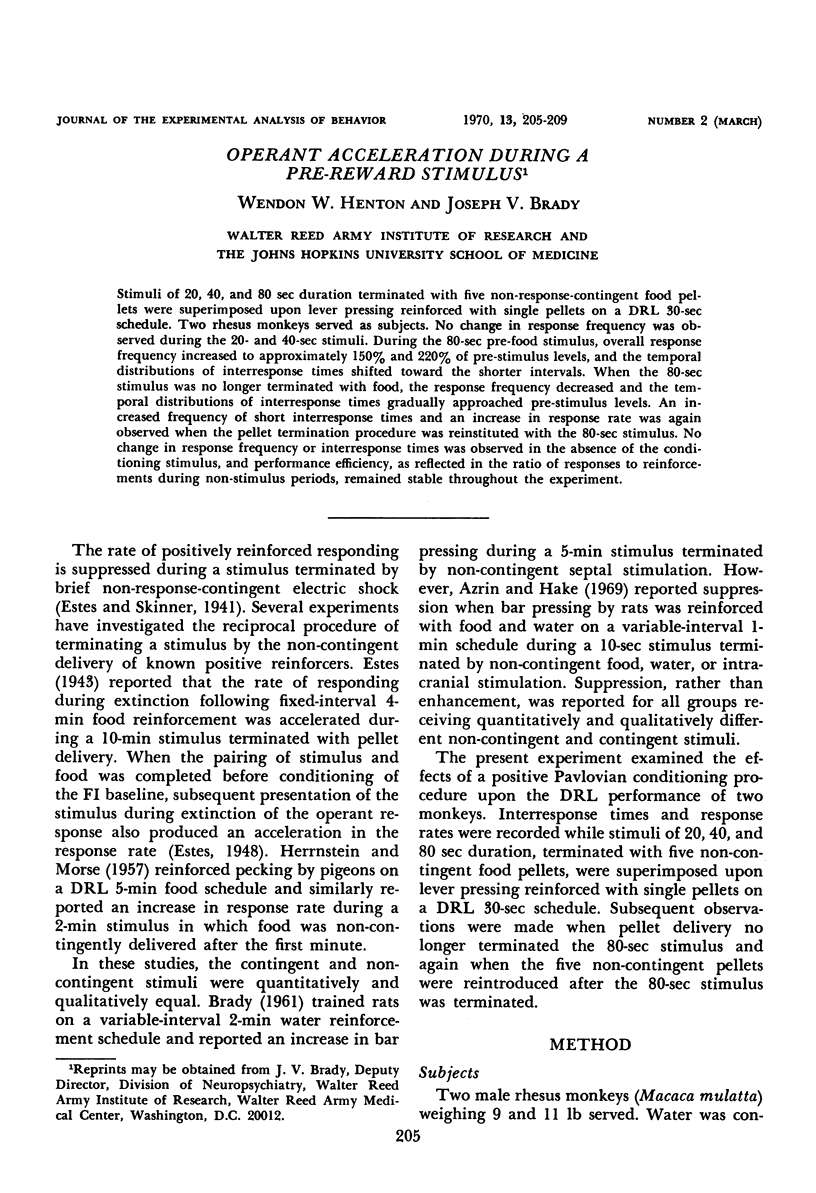
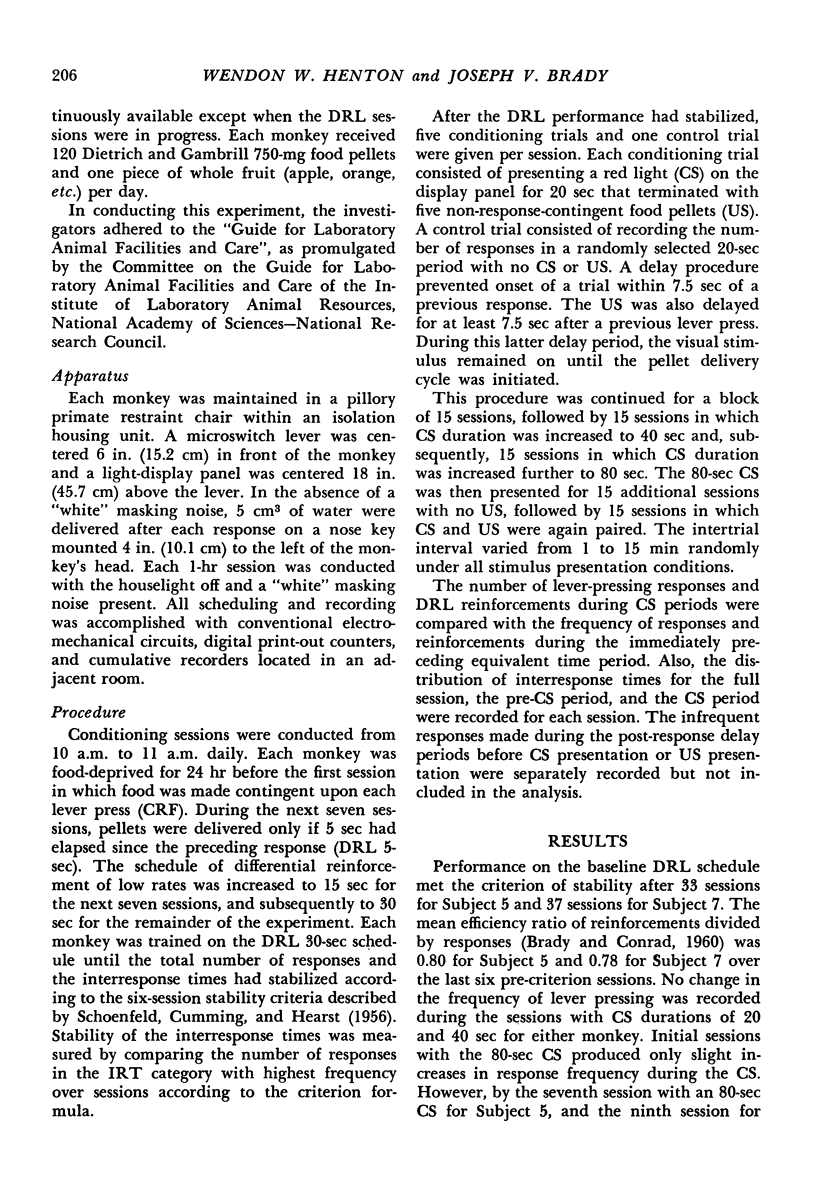
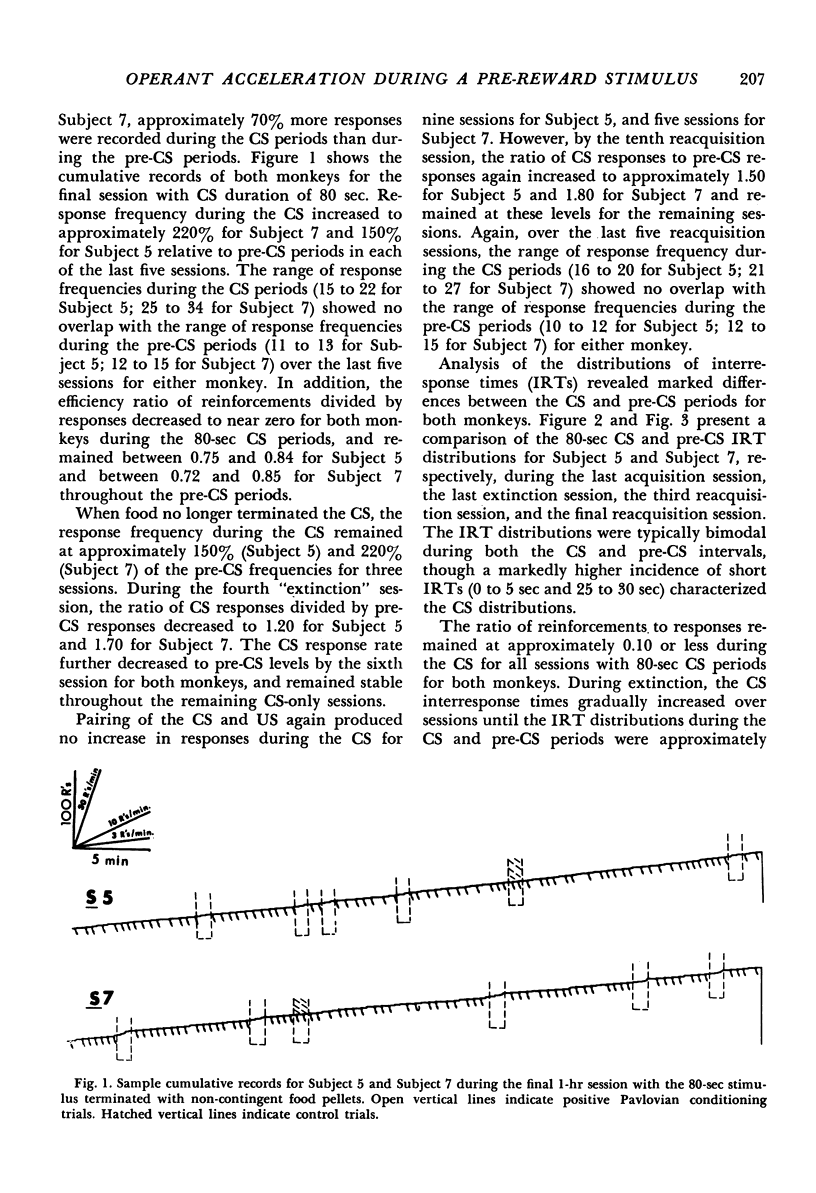
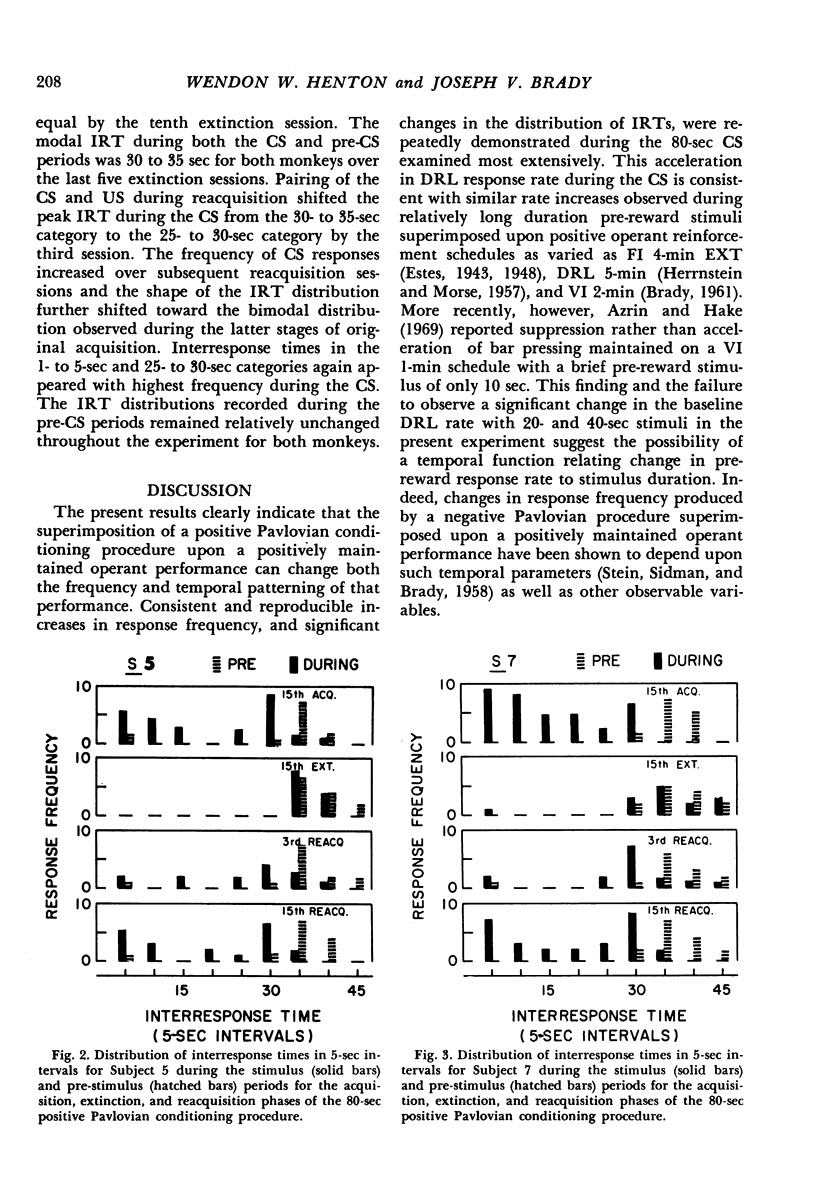
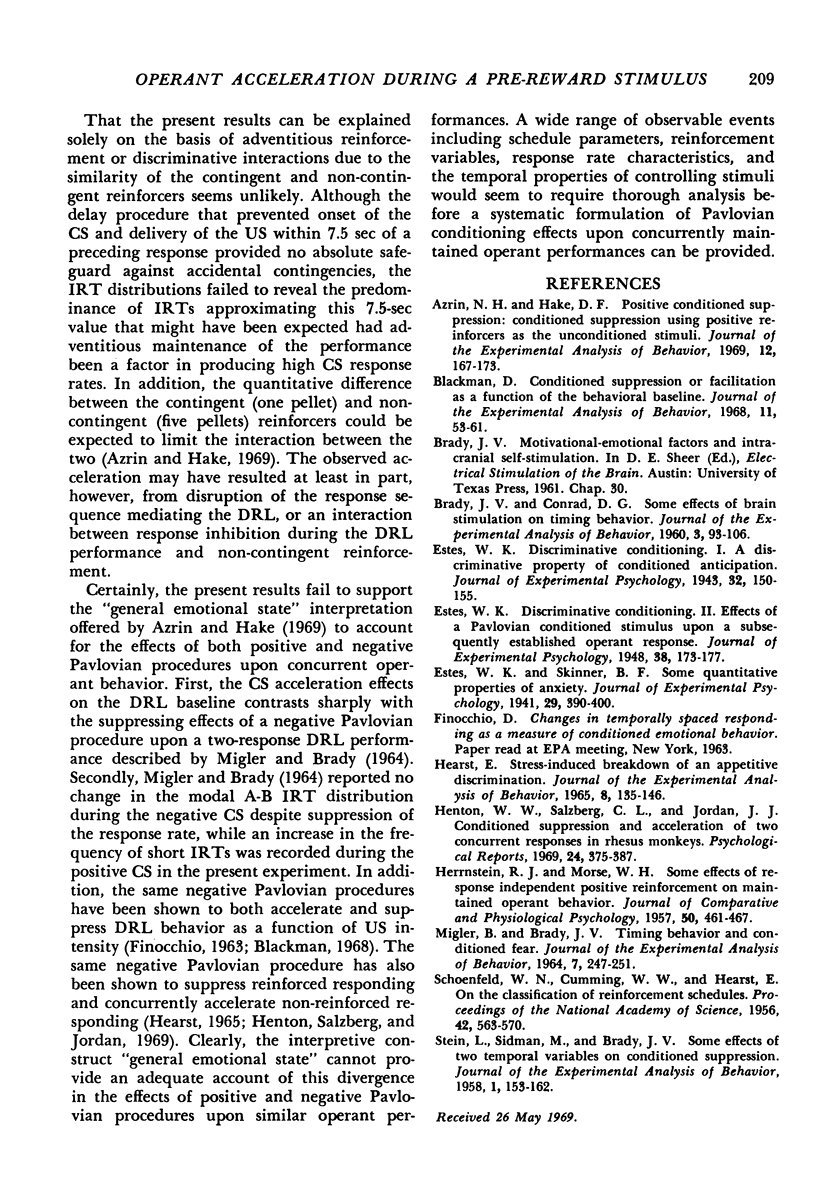
Selected References
These references are in PubMed. This may not be the complete list of references from this article.
- Azrin N. H., Hake D. F. Positive conditioned suppression: conditioned suppression using positive reinforcers as the unconditioned stimuli. J Exp Anal Behav. 1969 Jan;12(1):167–173. doi: 10.1901/jeab.1969.12-167. [DOI] [PMC free article] [PubMed] [Google Scholar]
- BRADY J. V., CONRAD D. G. Some effects of brain stimulation on timing behavior. J Exp Anal Behav. 1960 Apr;3:93–106. doi: 10.1901/jeab.1960.3-93. [DOI] [PMC free article] [PubMed] [Google Scholar]
- Blackman D. Conditioned suppression or facilitation as a function of the behavioral baseline. J Exp Anal Behav. 1968 Jan;11(1):53–61. doi: 10.1901/jeab.1968.11-53. [DOI] [PMC free article] [PubMed] [Google Scholar]
- HEARST E. STRESS-INDUCED BREAKDOWN OF AN APPETITIVE DISCRIMINATION. J Exp Anal Behav. 1965 May;8:135–146. doi: 10.1901/jeab.1965.8-135. [DOI] [PMC free article] [PubMed] [Google Scholar]
- HERRNSTEIN R. J., MORSE W. H. Some effects of response-independent positive reinforcement on maintained operant behavior. J Comp Physiol Psychol. 1957 Oct;50(5):461–467. doi: 10.1037/h0041506. [DOI] [PubMed] [Google Scholar]
- MIGLER B., BRADY J. V. TIMING BEHAVIOR AND CONDITIONED FEAR. J Exp Anal Behav. 1964 May;7:247–251. doi: 10.1901/jeab.1964.7-247. [DOI] [PMC free article] [PubMed] [Google Scholar]
- Schoenfeld W. N., Cumming W. W., Hearst E. ON THE CLASSIFICATION OF REINFORCEMENT SCHEDULES. Proc Natl Acad Sci U S A. 1956 Aug;42(8):563–570. doi: 10.1073/pnas.42.8.563. [DOI] [PMC free article] [PubMed] [Google Scholar]
- Stein L., Sidman M., Brady J. V. Some effects of Two Temporal Variables on Conditioned Suppression. J Exp Anal Behav. 1958 Apr;1(2):153–162. doi: 10.1901/jeab.1958.1-153. [DOI] [PMC free article] [PubMed] [Google Scholar]


